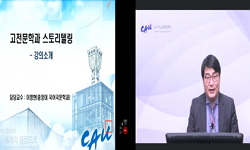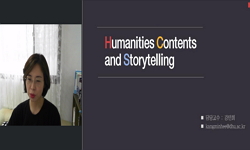이 연구의 목적은 ‘지식 구조론’ 이후 등장한 브루너의 내러티브 이론이 교육과정 통합의 근거가 될 수 있음을 탐색하는 데 있다. 브루너의 내러티브 이론은 패러다임적 사고를 극복하려...
http://chineseinput.net/에서 pinyin(병음)방식으로 중국어를 변환할 수 있습니다.
변환된 중국어를 복사하여 사용하시면 됩니다.
- 中文 을 입력하시려면 zhongwen을 입력하시고 space를누르시면됩니다.
- 北京 을 입력하시려면 beijing을 입력하시고 space를 누르시면 됩니다.

Bruner의 내러티브 이론에 비추어 본 교육과정 통합 탐색 = In Search of Curriculum Integration Based on Bruner’s Narrative Theory
한글로보기https://www.riss.kr/link?id=A82756750
- 저자
- 발행기관
- 학술지명
- 권호사항
-
발행연도
2011
-
작성언어
-
- 주제어
-
KDC
370
-
등재정보
KCI등재
-
자료형태
학술저널
- 발행기관 URL
-
수록면
189-220(32쪽)
-
KCI 피인용횟수
10
- DOI식별코드
- 제공처
- 소장기관
-
0
상세조회 -
0
다운로드
부가정보
국문 초록 (Abstract)
이 연구의 목적은 ‘지식 구조론’ 이후 등장한 브루너의 내러티브 이론이 교육과정 통합의 근거가 될 수 있음을 탐색하는 데 있다. 브루너의 내러티브 이론은 패러다임적 사고를 극복하려는 노력이며, 문화주의 입장을 견지하고 있다. 내러티브 이론의 관점에서 보면, 교육과정 통합의 근거로서의 내러티브는 실재의 구현체이며, 의미 형성, 자아 구성체이자 삶을 통합하는 성격을 지니고 있다. 교육과정 통합의 방법으로서 내러티브는 의미의 재구성, 이야기 만들기, 나선형의 재해석에 의해 의미가 드러난다. 이러한 내러티브 이론을 교육과정 통합의 입장에서 재해석해 보면, 지식 구조론의 확장에 기초하여 스토리, 스토리텔링, 그리고 내러티브의 방법으로 통합되어 우리의 삶을 조망할 수 있다. 요컨대 브루너가 주장한 내러티브 이론은 미시적으로는 교육과정과 교육의 문제가 통합적으로 표현되어야 하는 것으로 볼 수 있으며, 거시적으로는 인간과 개인의 삶에 대한 통찰적인 이해와 해석을 강조하려는 노력이다.
다국어 초록 (Multilingual Abstract)
The narrative theory regards education as cultural epistemology, based on the cultural properties of human-beings, and the intention of learners. Therefore, education is always situated in cultural settings and depends on the utilization of cultural resources. Bruner’s narrative theory’s point of view is culturalism, in that ’the mind and education’ is composed of the essential elements of human culture.
In curriculum integration, Bruner proposed a variety of ways according to the mechanism of knowledge construction, which was composed of the main ideas of constructivism, narrative thought, hermeneutics of meaning-making, and so on. Thus the ideas of structure of knowledge and spiral curriculums are reconstructed by narrative epistemology, story and storytelling.
Bruner’s curriculum theory based on culturalism, including a new view on culture, human development, and narrative reality. The constructive approach to curriculum theory provides an interpretive basis to the structure of knowledge and narrative approach should be analysed and interpreted in the context of cultural expression as a structure for organizing human experience and knowledge.
Bruner’s narrative theory to develop a curriculum that follows both the structure of knowledge and allows for the cultural factors. In regard’s to Bruner’s narrative theory, the learner should be able to stimulate the learner intuitively through dynamic use of the narrative.
The structure and reality of the narrative provides real learning to the student. By integrating narrative principles into a curriculum based on the structure of knowledge the individual learner will have the concepts match their reality. The integration of the narrative with the structure of knowledge will enhance the individual’s inner realization and improve their socio-cultural education.
The purpose of this study is to search for and examine curriculum integration as implied in Jerome S. Bruner’s narrative theory. Bruner’s educational theory had been studied mostly in terms of the structure of knowledge discussion, but as time goe...
The purpose of this study is to search for and examine curriculum integration as implied in Jerome S. Bruner’s narrative theory. Bruner’s educational theory had been studied mostly in terms of the structure of knowledge discussion, but as time goes by Bruner suggested the structure of narrative discussion and changed his viewpoint in 1980.
The narrative theory regards education as cultural epistemology, based on the cultural properties of human-beings, and the intention of learners. Therefore, education is always situated in cultural settings and depends on the utilization of cultural resources. Bruner’s narrative theory’s point of view is culturalism, in that ’the mind and education’ is composed of the essential elements of human culture.
In curriculum integration, Bruner proposed a variety of ways according to the mechanism of knowledge construction, which was composed of the main ideas of constructivism, narrative thought, hermeneutics of meaning-making, and so on. Thus the ideas of structure of knowledge and spiral curriculums are reconstructed by narrative epistemology, story and storytelling.
Bruner’s curriculum theory based on culturalism, including a new view on culture, human development, and narrative reality. The constructive approach to curriculum theory provides an interpretive basis to the structure of knowledge and narrative approach should be analysed and interpreted in the context of cultural expression as a structure for organizing human experience and knowledge.
Bruner’s narrative theory to develop a curriculum that follows both the structure of knowledge and allows for the cultural factors. In regard’s to Bruner’s narrative theory, the learner should be able to stimulate the learner intuitively through dynamic use of the narrative.
The structure and reality of the narrative provides real learning to the student. By integrating narrative principles into a curriculum based on the structure of knowledge the individual learner will have the concepts match their reality. The integration of the narrative with the structure of knowledge will enhance the individual’s inner realization and improve their socio-cultural education.
목차 (Table of Contents)
- 〈요약〉
- Ⅰ. 서론
- Ⅱ. 교육과정 통합의 근거와 의미
- Ⅲ. 교육과정 통합의 재해석
- Ⅳ. 결론 및 제언
- 〈요약〉
- Ⅰ. 서론
- Ⅱ. 교육과정 통합의 근거와 의미
- Ⅲ. 교육과정 통합의 재해석
- Ⅳ. 결론 및 제언
- 참고문헌
- 〈ABSTRACT〉
참고문헌 (Reference)
1 강현석, "합리주의적 교육과정 체제에서 배제된 내러티브 교육과정의 가능성과교과목 개발의 방향 탐색" 한국교육과정학회 23 (23): 83-115, 2005
2 강현석, "지식구조론의 재구성을 통한 교육과정 설계 원리의 구성" 한국교육과정학회 22 (22): 55-85, 2004
3 강현석, "지식구조론 이후 브루너의 교육과정이론 탐구" 한국교육과정학회 16 (16): 105-128, 1998
4 Bruner, J. S, "인간 과학의 혁명 -마음, 문화, 그리고 교육" 아카데미프레스 2011
5 김재춘, "의미 생성 활동으로서의 스토리텔링의 교육적 함의" 한국초등교육학회 22 (22): 61-82, 2009
6 송정란, "스토리텔링의 이해와 실제" 문학아카데미 2006
7 이수라, "스토리텔링의 이해" 글누림 2007
8 최예정, "스토리텔링과 내러티브" 글누림 2005
9 김형철, "서사적 자아(narrative self)에 대한 이해" 부산대학교사회과학대학 20 : 111-134, 2001
1 강현석, "합리주의적 교육과정 체제에서 배제된 내러티브 교육과정의 가능성과교과목 개발의 방향 탐색" 한국교육과정학회 23 (23): 83-115, 2005
2 강현석, "지식구조론의 재구성을 통한 교육과정 설계 원리의 구성" 한국교육과정학회 22 (22): 55-85, 2004
3 강현석, "지식구조론 이후 브루너의 교육과정이론 탐구" 한국교육과정학회 16 (16): 105-128, 1998
4 Bruner, J. S, "인간 과학의 혁명 -마음, 문화, 그리고 교육" 아카데미프레스 2011
5 김재춘, "의미 생성 활동으로서의 스토리텔링의 교육적 함의" 한국초등교육학회 22 (22): 61-82, 2009
6 송정란, "스토리텔링의 이해와 실제" 문학아카데미 2006
7 이수라, "스토리텔링의 이해" 글누림 2007
8 최예정, "스토리텔링과 내러티브" 글누림 2005
9 김형철, "서사적 자아(narrative self)에 대한 이해" 부산대학교사회과학대학 20 : 111-134, 2001
10 김광욱, "사용가치와 교환가치를 통해 본 스토리텔링 패러다임 연구" 건국대학교 대학원 2007
11 이하영, "브루너의 전․후기 교육과정이론 비교" 성균관대학교 대학원 2005
12 Bruner, J. S, "브루너 교육의 과정" 배영사 1995
13 MacIntyre, A, "덕의 상실" 문예출판사 1997
14 전현정, "대안적 초등교육과정 개발 방향 탐색 - Egan의 이야기 형식 모형을 중심으로 -" 한국초등교육학회 22 (22): 169-198, 2009
15 이순옥, "내러티브에 기반한 교과서 진술 방식의 개발" 경북대학교 대학원 2009
16 박민정, "내러티브란 무엇인가?: 이야기 만들기, 의미구성, 커뮤니케이션의 해석학적 순환" 교육연구소 7 (7): 27-47, 2006
17 Polkinghorne, D. E, "내러티브, 인문과학을 만나다" 학지사 2009
18 Clandinin, D. J., "내러티브 탐구: 교육에서의 질적 연구의 경험과 사례" 교육과학사 2007
19 전현정, "내러티브 중심의 교육과정 재구성 방향 탐색" 한국교육철학회 (44) : 287-325, 2011
20 김만희, "내러티브 사고의 과학교육적 함의" 한국과학교육학회 22 (22): 851-861, 2002
21 한승희, "내러티브 사고양식의 교육적 의미" 한국교육과정학회 15 (15): 400-423, 1997
22 이흔정, "내러티브 교육과정의 적용에 대한 연구" 고려대학교 대학원 2003
23 박창언, "내러티브 교육과정의 이론과 실제" 학이당 2007
24 양미경, "구성주의와 교육과정, In 교육과정: 이론과 실제" 교육과학사 449-476, 2002
25 한승희, "교육학의 새로운 지표로서 내러티브" 한국교육학회 38 (38): 259-282, 2000
26 Bruner, J. S, "교육의 적합성 논쟁" 교육과학사 1992
27 Bruner, J. S, "교육의 문화" 교육과학사 2005
28 Doll, W. E. Jr, "교육과정과 포스트모더니즘의 시각" 교육과학사 1997
29 이원희, "교육과정과 수업" 교육과학사 2007
30 Ingram, J. B, "교육과정 통합과 평생교육" 학지사 1995
31 Bruner, J. S, "교육 이론의 새로운 지평 -마음과 세계를 융합하기" 교육과학사 2011
32 박세원, "교사의 교육 활동에서 내러티브 탐구 과정이 가지는 의미" 한국교육인류학회 10 (10): 37-62, 2007
33 홍은숙, "교사와 교육과정: 교사들의 경험에 대한 내러티브" 양서원 2007
34 소경희, "교사양성 교육과정에 있어서 ‘내러티브 탐구(narrative inquiry)'의 함의" 한국교육학회 42 (42): 189-211, 2004
35 한승희, "과학적 사고와 서사적 사고의 교육적 의미: 과학적 사고와 서사적 사고에서 추론과 정서" 한국교육과정학회 23 (23): 39-64, 2005
36 Bruner, J. S, "Toward a theory of instruction" Harvard University Press 1966
37 Carr, D, "Time, narrative, and history" Indiana University Press 1986
38 Ricoeur, M, "Time and narrative" The University of Chicago Press 1984
39 Bruner, J. S, "The process of education reconsidered" ASCD 1971
40 Gudmundsdottir, S, "The narrative nature of pedagogical content knowledge, In Narrative in teaching, learning, and research" Teachers College Press 1995
41 Whitehead, A. N, "The aims of education" The Free Press 1929
42 Egan, K, "Teaching as storytelling" The University of Chicago Press 1986
43 Bruner, J. S, "Studies in cognitive growth" John Wiley & Sons 1966
44 박준영, "Richard Rorty의 “대화”와 “아이러니”에 대한 교육적 논의" 한국교육철학회 (23) : 53-64, 2003
45 Bruner, J. S, "On knowing: Essays for the left hand" Harvard University Press 1962
46 Anthoney Paul Kerby, "Narrative and the self" Indiana University Press 1991
47 Rossiter, M, "Narrative and the practice of adult education" Krieger 2007
48 Vygotsky, L, "Mind in society: The development of higher psychological process" Harvard University Press 1986
49 Bruner, J. S, "Making stories: Law, literature, life" Farrar, Straus and Giroux 2002
50 Bigge, M, "Learning theories for teachers(6th Edition)" Allyn & Bacon 1999
51 박혜원, "J.S.Bruner의 교육과정이론 고찰" 이화여자대학교 대학원 1980
52 Doyle, M, "Instructional planning through stories: Rethinking the traditional lesson Plan" 69 (69): 1998
53 Bruner, J. S, "In search of mind" Harper & Row Publishers 1983
54 Dewey, J, "Experience and education" Macmillan Publishing Company 1938
55 최영수, "Bruner의 전․후기 이론에 따른 교육과정 통합 탐구" 경북대학교 대학원 2009
56 강현석, "Bruner의 교육과정 이론에서 지식의 재해석 : 지식의 구조와 내러티브의 관계" 한국교육철학회 (38) : 1-34, 2009
57 Conle, C, "An anatomy of narrative curricula" 32 (32): 3-15, 2003
58 Bruner, J. S, "A study of thinking" John Wiley & Sons 1956
동일학술지(권/호) 다른 논문
-
인성교육의 담론으로서의 헤르바르트의 ‘교육하는 수업’ 이론
- 한국교육사상연구회
- 강선보(Kang, Sun-Bo)
- 2011
- KCI등재
-
- 한국교육사상학회 (구 한국교육사상연구회)
- 김대현(Kim Dae-Hyun)
- 2011
- KCI등재
-
- 한국교육사상학회 (구 한국교육사상연구회)
- 김상무(Kim Sang Mu)
- 2011
- KCI등재
-
- 한국교육사상학회 (구 한국교육사상연구회)
- 박균섭(Park Kyoon-Seop)
- 2011
- KCI등재
분석정보
인용정보 인용지수 설명보기
학술지 이력
| 연월일 | 이력구분 | 이력상세 | 등재구분 |
|---|---|---|---|
| 2027 | 평가예정 | 재인증평가 신청대상 (재인증) | |
| 2022-09-26 | 학회명변경 | 영문명 : Korean Educational Idea Association -> The Korean Association of Educational Ideas |  |
| 2022-06-25 | 학술지명변경 | 외국어명 : The Journal of Educational Idea -> The Korean Journal of Educational Ideas |  |
| 2021-01-01 | 평가 | 등재학술지 유지 (재인증) |  |
| 2018-04-06 | 학회명변경 | 한글명 : 한국교육사상연구회 -> 한국교육사상학회영문명 : The Korean Society For Study Of Educational Idea -> Korean Educational Idea Association |  |
| 2018-01-01 | 평가 | 등재학술지 유지 (등재유지) |  |
| 2015-01-01 | 평가 | 등재학술지 유지 (등재유지) |  |
| 2011-01-01 | 평가 | 등재학술지 유지 (등재유지) |  |
| 2008-01-01 | 평가 | 등재학술지 선정 (등재후보2차) |  |
| 2007-01-01 | 평가 | 등재후보 1차 PASS (등재후보1차) |  |
| 2005-01-01 | 평가 | 등재후보학술지 선정 (신규평가) |  |
학술지 인용정보
| 기준연도 | WOS-KCI 통합IF(2년) | KCIF(2년) | KCIF(3년) |
|---|---|---|---|
| 2016 | 0.63 | 0.63 | 0.57 |
| KCIF(4년) | KCIF(5년) | 중심성지수(3년) | 즉시성지수 |
| 0.52 | 0.55 | 0.89 | 0.46 |




 KCI
KCI 스콜라
스콜라







